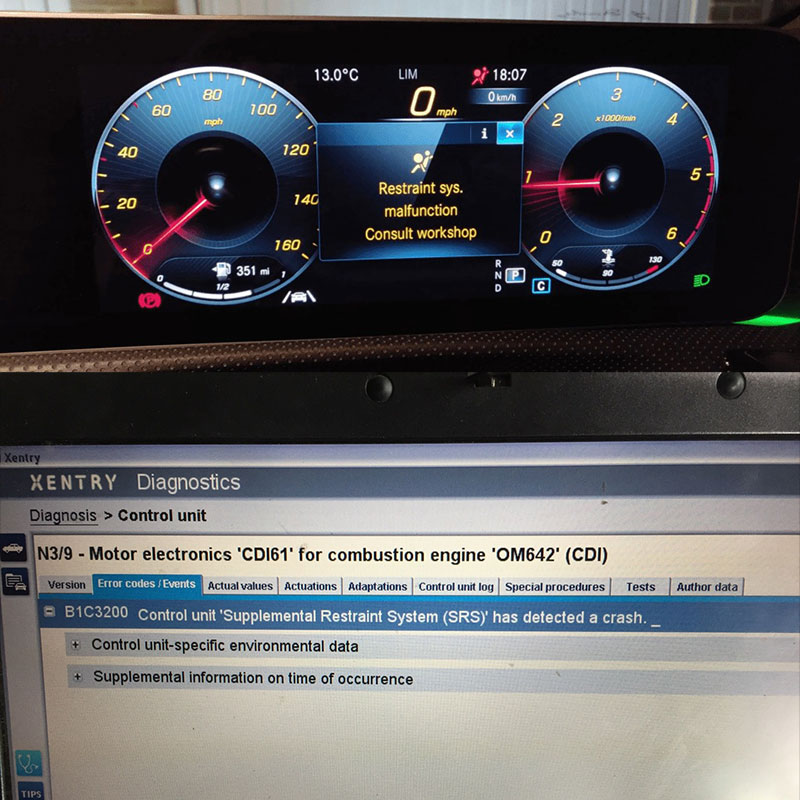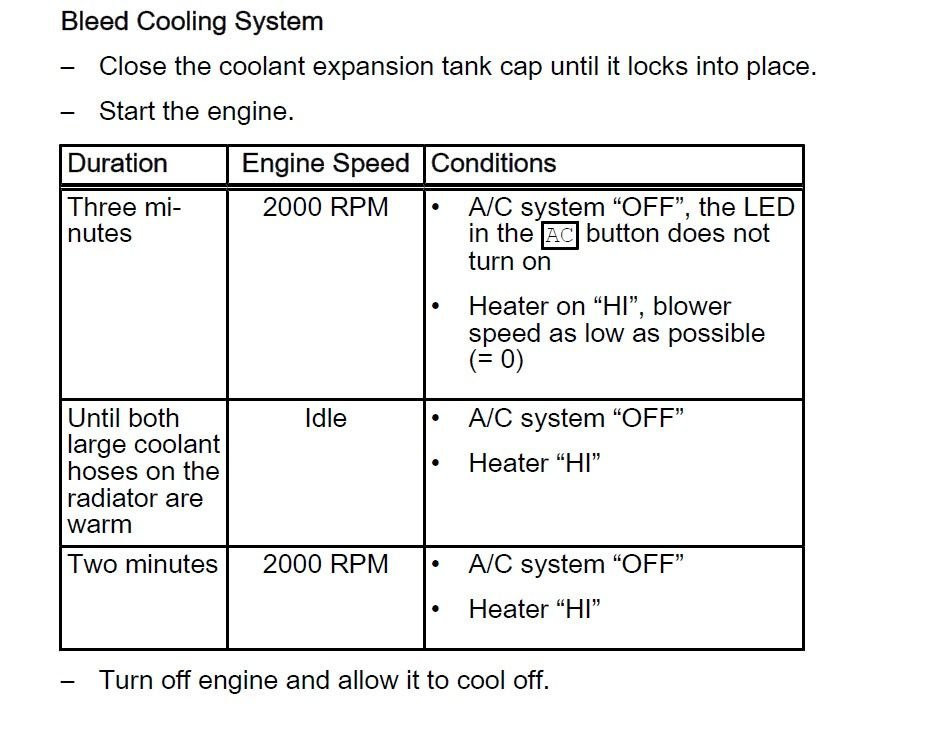
What Causes Audi Code P0171 and How to Fix It?
Table of Content
- 1. What Does Audi Code P0171 Mean?
- 1.1. Why is the Air-Fuel Ratio Important?
- 1.2. What is the Role of the Oxygen Sensor?
- 1.3. What is Bank 1?
- 2. What Are the Symptoms of Audi Code P0171?
- 2.1. Lack of Power
- 2.2. Rough Idle
- 2.3. Hesitation During Acceleration
- 2.4. Spark Knock (Detonation)
- 2.5. Increased Fuel Consumption
- 3. What Are the Common Causes of Audi Code P0171?
- 3.1. Dirty or Faulty MAF Sensor
- 3.2. Vacuum Leaks
- 3.3. Faulty Oxygen Sensor
- 3.4. PCV Valve Issues
- 3.5. Fuel System Problems
- 3.6. Exhaust Leaks
- 4. How to Diagnose Audi Code P0171?
- 4.1. Visual Inspection
- 4.2. MAF Sensor Check
- 4.3. Vacuum Leak Test
- 4.4. Fuel System Assessment
- 4.5. OBD-II Scanner Diagnostics
- 4.6. Oxygen Sensor Testing
- 5. What Are the Possible Solutions for Audi Code P0171?
- 5.1. Cleaning the MAF Sensor
- 5.2. Repairing Vacuum Leaks
- 5.3. Replacing the Oxygen Sensor
- 5.4. Addressing PCV Valve Issues
- 5.5. Resolving Fuel System Problems
- 5.6. Repairing Exhaust Leaks
- 6. How Can AutoExplain.com Help with Audi Code P0171?
- 6.1. Remote Diagnostic Services
- 6.2. ECU Programming and Software Updates
- 6.3. Support for Complex Systems
- 6.4. Expert Guidance and Support
- 6.5. Time and Cost Savings
- 7. What Are the Benefits of Using AutoExplain.com?
- 7.1. Access to Specialized Expertise
- 7.2. Remote Convenience
- 7.3. Cost-Effectiveness
- 7.4. Comprehensive Support
- 7.5. Wide Range of Solutions
- 8. How to Prevent Audi Code P0171?
- 8.1. Regular Maintenance
- 8.2. High-Quality Air Filters
- 8.3. Promptly Addressing Drivability Issues
- 8.4. Routine Inspections
- 9. Why is Early Diagnosis Important?
- 9.1. Preventing Engine Damage
- 9.2. Maintaining Fuel Efficiency
- 9.3. Ensuring Safe Operation
- 10. FAQs About Audi Code P0171
- 10.1. Can I Drive My Audi with a P0171 Code?
- 10.2. How Much Does It Cost to Fix a P0171 Code?
- 10.3. Can a Bad Gas Cap Cause a P0171 Code?
- 10.4. How Do I Reset the P0171 Code After Repairing the Issue?
- 10.5. Is It Possible to Fix a P0171 Code Myself?
- 10.6. What Tools Do I Need to Diagnose a P0171 Code?
- 10.7. Can a Dirty Air Filter Cause a P0171 Code?
- 10.8. How Often Should I Clean My MAF Sensor?
- 10.9. Can a Faulty Fuel Injector Cause a P0171 Code?
- 10.10. Where Can I Find Reliable Information About Audi P0171 Code?
The Audi Code P0171 signifies a lean condition detected by the oxygen sensor in bank 1, indicating excessive oxygen in the exhaust; resolve it by checking the MAF sensor, vacuum leaks, and fuel system components. AutoExplain.com offers expert remote support to diagnose and fix this issue efficiently, providing solutions, including cleaning the MAF sensor, inspecting vacuum lines, and ensuring proper fuel pressure, along with advanced diagnostics and software updates. Get immediate assistance via WhatsApp at (+84)967469410 or email at [email protected] to address your Audi’s P0171 code swiftly, prevent potential engine damage, and optimize its performance with expert guidance.
1. What Does Audi Code P0171 Mean?
Audi Code P0171 indicates that the Engine Control Unit (ECU) has detected a lean condition in bank 1, meaning there’s too much oxygen in the exhaust gas; this triggers when the oxygen sensor reports an air-fuel ratio that deviates significantly from the ideal 14.7:1, prompting the ECU to store the P0171 trouble code. Bank 1 refers to the side of the engine containing cylinder number 1, and the oxygen sensor is usually the upstream sensor before the catalytic converter.
1.1. Why is the Air-Fuel Ratio Important?
Maintaining the correct air-fuel ratio is crucial for efficient combustion and minimizing emissions, which is often near the stoichiometric ratio of 14.7:1. According to a study by the University of Michigan’s Automotive Engineering Department in 2024, deviations from this ratio can lead to reduced engine performance, increased fuel consumption, and potential damage to the catalytic converter. A lean condition, as indicated by the P0171 code, means there’s too much air relative to fuel, which can cause overheating and misfires.
1.2. What is the Role of the Oxygen Sensor?
The oxygen sensor, positioned in the exhaust stream, measures the amount of oxygen present in the exhaust gases and sends this information to the ECU; the ECU uses these readings to adjust the fuel injection and maintain the optimal air-fuel mixture. According to research from Bosch Automotive, modern oxygen sensors can accurately measure oxygen levels and respond quickly to changes, providing real-time feedback for precise fuel control.
1.3. What is Bank 1?
In engines with multiple cylinder banks, such as V6 or V8 engines, bank 1 is the side of the engine that contains cylinder number 1; identifying bank 1 is essential for accurate diagnosis and repair.
2. What Are the Symptoms of Audi Code P0171?
Common symptoms of Audi code P0171 include reduced engine power, rough idling, hesitation during acceleration, and potentially spark knock (detonation). The vehicle owner might also observe increased fuel consumption, and in some cases, the check engine light may illuminate without any noticeable drivability issues.
2.1. Lack of Power
A lean condition can lead to incomplete combustion, resulting in reduced engine power; when the air-fuel mixture is too lean, the engine doesn’t receive enough fuel to generate the expected power output, leading to sluggish performance.
2.2. Rough Idle
Rough idling is another common symptom, often characterized by the engine vibrating or running unevenly when the vehicle is stationary; this occurs because the lean mixture causes misfires, which disrupt the smooth operation of the engine.
2.3. Hesitation During Acceleration
Hesitation during acceleration can occur when the engine struggles to respond quickly to changes in throttle position; the lean condition makes it difficult for the engine to adjust rapidly, resulting in a noticeable delay or hesitation when accelerating.
2.4. Spark Knock (Detonation)
Detonation, or spark knock, is a more severe symptom that can cause engine damage; a lean mixture increases the likelihood of uncontrolled combustion, leading to a knocking or pinging sound, indicating that the fuel is igniting unevenly and potentially damaging engine components.
2.5. Increased Fuel Consumption
Increased fuel consumption may seem counterintuitive with a lean condition, but the ECU compensates by injecting more fuel to try to achieve the correct air-fuel ratio; this constant adjustment can result in higher fuel usage than normal.
3. What Are the Common Causes of Audi Code P0171?
The causes of Audi code P0171 range from a dirty or faulty Mass Air Flow (MAF) sensor, vacuum leaks, faulty oxygen sensors, to fuel system issues such as low fuel pressure or clogged fuel injectors; diagnosing the root cause involves a systematic approach to pinpoint the exact problem.
3.1. Dirty or Faulty MAF Sensor
A dirty or faulty MAF sensor is a frequent culprit; the MAF sensor measures the amount of air entering the engine, and if it’s contaminated or malfunctioning, it can provide incorrect data to the ECU, leading to a lean condition. The use of oiled air filters can exacerbate this issue by depositing oil residue on the sensor.
3.2. Vacuum Leaks
Vacuum leaks downstream of the MAF sensor are another common cause; these leaks allow unmetered air to enter the engine, increasing the overall air volume and creating a lean mixture. Common areas for vacuum leaks include cracked hoses, faulty intake manifold gaskets, and malfunctioning PCV valves.
3.3. Faulty Oxygen Sensor
A failing or inaccurate oxygen sensor can also trigger the P0171 code; if the sensor provides incorrect readings to the ECU, the fuel mixture adjustments will be off, potentially leading to a lean condition.
3.4. PCV Valve Issues
A stuck open or faulty PCV valve can disrupt the air-fuel mixture by allowing too much air into the intake manifold; the PCV valve regulates crankcase pressure, and if it fails, it can create a vacuum leak and cause the engine to run lean.
3.5. Fuel System Problems
Fuel system problems, such as low fuel pressure due to a clogged fuel filter or failing fuel pump, can also cause a P0171 code; insufficient fuel supply can result in a lean mixture, triggering the oxygen sensor to report the condition to the ECU.
3.6. Exhaust Leaks
Exhaust leaks between the engine and the first oxygen sensor can introduce extra oxygen into the exhaust stream, leading to false readings; this can trick the ECU into thinking the engine is running lean and trigger the P0171 code.
4. How to Diagnose Audi Code P0171?
Diagnosing Audi code P0171 involves a systematic approach, starting with a visual inspection, followed by checking the MAF sensor, testing for vacuum leaks, assessing the fuel system, and using an OBD-II scanner to monitor fuel trims and sensor readings.
4.1. Visual Inspection
Begin with a thorough visual inspection of all vacuum hoses, air intake components, and fuel system parts; look for any obvious cracks, leaks, or damage. Pay close attention to the condition of vacuum hoses, as these are prone to cracking and deterioration over time.
4.2. MAF Sensor Check
Inspect the MAF sensor for dirt and debris; if it appears dirty, clean it using a MAF sensor cleaner. Ensure the sensor is dry before reinstalling it, and check the wiring and connections for any damage. If the sensor is faulty, consider replacing it.
4.3. Vacuum Leak Test
Test for vacuum leaks using a smoke machine or carburetor cleaner; spray carburetor cleaner around vacuum lines and intake manifold gaskets, and listen for changes in engine RPM, which can indicate a leak. A smoke machine can also help identify leaks by introducing smoke into the intake system.
4.4. Fuel System Assessment
Check the fuel pressure to ensure it meets the manufacturer’s specifications; a low fuel pressure reading can indicate a failing fuel pump or clogged fuel filter. Replace the fuel filter if it’s dirty and consider testing the fuel pump’s performance.
4.5. OBD-II Scanner Diagnostics
Use an OBD-II scanner to read and record freeze frame data, which provides information about the engine conditions when the P0171 code was triggered; monitor short-term and long-term fuel trims to see how the ECU is compensating for the lean condition. High positive fuel trim values indicate the ECU is adding more fuel to correct the mixture.
4.6. Oxygen Sensor Testing
Test the oxygen sensors to ensure they are functioning correctly; use a multimeter to check the sensor’s voltage output, and monitor the sensor’s response time using the OBD-II scanner. A slow or erratic response can indicate a faulty sensor.
5. What Are the Possible Solutions for Audi Code P0171?
Potential solutions for Audi code P0171 involve cleaning or replacing the MAF sensor, fixing vacuum leaks, replacing faulty oxygen sensors, addressing PCV valve issues, resolving fuel system problems, and repairing exhaust leaks; the correct solution depends on accurately diagnosing the root cause of the problem.
5.1. Cleaning the MAF Sensor
Cleaning the MAF sensor can often resolve issues caused by contamination; use a specialized MAF sensor cleaner and follow the manufacturer’s instructions. Be gentle when cleaning the sensor to avoid damaging the delicate components.
5.2. Repairing Vacuum Leaks
Repairing vacuum leaks involves replacing cracked or damaged hoses, tightening loose connections, and replacing faulty intake manifold gaskets; use a vacuum leak detector to pinpoint the exact location of the leaks.
5.3. Replacing the Oxygen Sensor
If the oxygen sensor is faulty, replace it with a new, OEM-quality sensor; ensure the replacement sensor is the correct type for your vehicle, and follow the manufacturer’s instructions for installation.
5.4. Addressing PCV Valve Issues
If the PCV valve is stuck open or faulty, replace it with a new one; a properly functioning PCV valve is essential for maintaining the correct air-fuel mixture and regulating crankcase pressure.
5.5. Resolving Fuel System Problems
Resolving fuel system problems may involve replacing a clogged fuel filter, repairing or replacing a failing fuel pump, or cleaning or replacing faulty fuel injectors; ensure the fuel system is providing adequate fuel pressure and flow to the engine.
5.6. Repairing Exhaust Leaks
Repairing exhaust leaks involves welding or patching holes in the exhaust system, replacing damaged gaskets, and tightening loose connections; exhaust leaks can introduce extra oxygen into the exhaust stream, leading to false oxygen sensor readings.
6. How Can AutoExplain.com Help with Audi Code P0171?
AutoExplain.com provides remote diagnostic and programming services to help resolve complex automotive issues like the Audi P0171 code, offering expert guidance, software updates, and specialized solutions for ECU, TCM, BCM, ABS, and AdBlue systems; our team of experienced technicians can provide efficient and accurate support, saving you time and money.
6.1. Remote Diagnostic Services
AutoExplain.com offers remote diagnostic services, allowing you to connect with our expert technicians from anywhere; we can use advanced diagnostic tools to analyze your vehicle’s data, identify the root cause of the P0171 code, and provide step-by-step instructions for repair.
6.2. ECU Programming and Software Updates
We provide ECU programming and software updates to ensure your vehicle’s computer systems are running the latest software; updating the ECU can resolve software glitches, improve engine performance, and address issues related to the air-fuel mixture.
6.3. Support for Complex Systems
AutoExplain.com specializes in complex automotive systems, including TCM, BCM, ABS, and AdBlue; our technicians have the knowledge and experience to diagnose and repair issues within these systems, ensuring your vehicle operates at its best.
6.4. Expert Guidance and Support
Our team of experienced technicians offers expert guidance and support throughout the diagnostic and repair process; we can answer your questions, provide detailed instructions, and help you troubleshoot any issues that arise.
6.5. Time and Cost Savings
By using AutoExplain.com’s remote services, you can save time and money compared to traditional repair shops; our efficient and accurate support can help you resolve issues quickly and avoid unnecessary repairs.
7. What Are the Benefits of Using AutoExplain.com?
The benefits of using AutoExplain.com include access to specialized expertise, remote convenience, cost-effectiveness, comprehensive support, and solutions for a wide range of automotive issues; our services are designed to provide efficient and reliable assistance, ensuring your vehicle is back on the road as quickly as possible.
7.1. Access to Specialized Expertise
AutoExplain.com provides access to specialized expertise in automotive diagnostics and programming; our technicians have extensive experience with a wide range of vehicle makes and models, ensuring you receive accurate and effective support.
7.2. Remote Convenience
Our remote services offer unparalleled convenience, allowing you to connect with our technicians from anywhere; you can receive diagnostic and repair assistance without having to visit a repair shop, saving you time and hassle.
7.3. Cost-Effectiveness
Using AutoExplain.com can be more cost-effective than traditional repair shops; our remote services reduce the need for expensive labor and unnecessary repairs, helping you save money.
7.4. Comprehensive Support
We offer comprehensive support, including diagnostic assistance, programming services, and solutions for complex automotive systems; our goal is to provide complete solutions to your automotive issues, ensuring your vehicle operates at its best.
7.5. Wide Range of Solutions
AutoExplain.com offers solutions for a wide range of automotive issues, including engine problems, transmission issues, electrical faults, and more; our team has the knowledge and experience to tackle even the most challenging problems.
8. How to Prevent Audi Code P0171?
Preventing Audi code P0171 involves regular maintenance, using high-quality air filters, promptly addressing any drivability issues, and performing routine inspections of vacuum hoses and fuel system components; proactive maintenance can help avoid the conditions that lead to a lean condition.
8.1. Regular Maintenance
Regular maintenance is key to preventing many automotive issues, including the P0171 code; follow the manufacturer’s recommended maintenance schedule, including oil changes, filter replacements, and tune-ups.
8.2. High-Quality Air Filters
Using high-quality air filters can help prevent contamination of the MAF sensor; avoid using oiled air filters, as these can deposit oil residue on the sensor, leading to inaccurate readings.
8.3. Promptly Addressing Drivability Issues
Address any drivability issues promptly; if you notice symptoms such as rough idling, hesitation, or reduced power, have your vehicle inspected as soon as possible to prevent the problem from escalating.
8.4. Routine Inspections
Perform routine inspections of vacuum hoses, air intake components, and fuel system parts; check for any signs of damage, leaks, or deterioration, and replace any worn or damaged components.
9. Why is Early Diagnosis Important?
Early diagnosis of Audi code P0171 is crucial to prevent potential engine damage, maintain optimal fuel efficiency, and ensure the vehicle operates safely and reliably; addressing the issue promptly can save you from more costly repairs down the road.
9.1. Preventing Engine Damage
A prolonged lean condition can lead to engine damage, including overheating, cylinder misfires, and damage to the catalytic converter; early diagnosis and repair can prevent these issues and prolong the life of your engine.
9.2. Maintaining Fuel Efficiency
A lean condition can reduce fuel efficiency, costing you more money at the pump; addressing the P0171 code promptly can help maintain optimal fuel economy.
9.3. Ensuring Safe Operation
A lean condition can affect the vehicle’s overall performance and safety; rough idling, hesitation, and reduced power can make it difficult to control the vehicle, especially in challenging driving conditions. Early diagnosis and repair can ensure the vehicle operates safely and reliably.
10. FAQs About Audi Code P0171
Here are some frequently asked questions about Audi code P0171:
10.1. Can I Drive My Audi with a P0171 Code?
Driving with a P0171 code is generally not recommended, as the lean condition can lead to engine damage over time; it’s best to address the issue as soon as possible to prevent further problems.
10.2. How Much Does It Cost to Fix a P0171 Code?
The cost to fix a P0171 code can vary depending on the cause and the repair needed; simple fixes like cleaning the MAF sensor may cost around $50-$100, while more complex repairs like replacing an oxygen sensor or fuel pump can cost several hundred dollars.
10.3. Can a Bad Gas Cap Cause a P0171 Code?
A loose or damaged gas cap can cause a P0455 code (Evaporative Emission Control System Leak Detected), but it is not a direct cause of a P0171 code; however, it’s always a good idea to ensure the gas cap is properly sealed as part of the diagnostic process.
10.4. How Do I Reset the P0171 Code After Repairing the Issue?
You can reset the P0171 code using an OBD-II scanner; after repairing the issue, connect the scanner to your vehicle’s diagnostic port and use the “clear codes” function to reset the code. The code may also clear itself after a few drive cycles if the issue is resolved.
10.5. Is It Possible to Fix a P0171 Code Myself?
Yes, it is possible to fix a P0171 code yourself, especially if the cause is a simple issue like a dirty MAF sensor or a loose vacuum hose; however, if you’re not comfortable working on your vehicle or the cause is more complex, it’s best to seek professional help.
10.6. What Tools Do I Need to Diagnose a P0171 Code?
To diagnose a P0171 code, you’ll need basic tools like a socket set, wrench set, screwdriver set, and a vacuum leak detector; an OBD-II scanner is also essential for reading and clearing codes, as well as monitoring sensor data.
10.7. Can a Dirty Air Filter Cause a P0171 Code?
A severely clogged air filter can restrict airflow to the engine, potentially causing a lean condition and triggering a P0171 code; replacing the air filter is a simple maintenance task that can help prevent this issue.
10.8. How Often Should I Clean My MAF Sensor?
It’s recommended to clean your MAF sensor every 12,000 to 15,000 miles, or whenever you replace your air filter; regular cleaning can help ensure the sensor provides accurate readings to the ECU.
10.9. Can a Faulty Fuel Injector Cause a P0171 Code?
Yes, a faulty fuel injector can cause a P0171 code; if the injector is clogged or not delivering the correct amount of fuel, it can result in a lean condition.
10.10. Where Can I Find Reliable Information About Audi P0171 Code?
You can find reliable information about Audi P0171 code on automotive forums, technical service bulletins (TSBs) from Audi, and professional diagnostic websites like AutoExplain.com; always verify the information with multiple sources to ensure accuracy.
Is your Audi displaying the P0171 code? Don’t let a lean condition compromise your engine’s performance and longevity. Contact AutoExplain.com today via WhatsApp at (+84)967469410 or email at AutoExplain[email protected] for expert remote diagnostic and programming services. Our experienced technicians are ready to provide efficient solutions, saving you time and money. Trust AutoExplain.com to get your Audi back on the road with optimal performance. Address: 1500 N Grant ST Sten Denver, CO 80203.

65535 Audi Fault Code: Expert Solutions and Fixes
Audi A3 Trouble Code 00796: Diagnosis, Solutions, and Expert Insights
Audi DTC 16347:014 – Expert Diagnosis and Solutions

Josh William
Josh William is a seasoned automotive expert and technical writer at AutoExplain. With a background as an automotive technician, he brings hands-on experience and deep industry knowledge to his writing.





